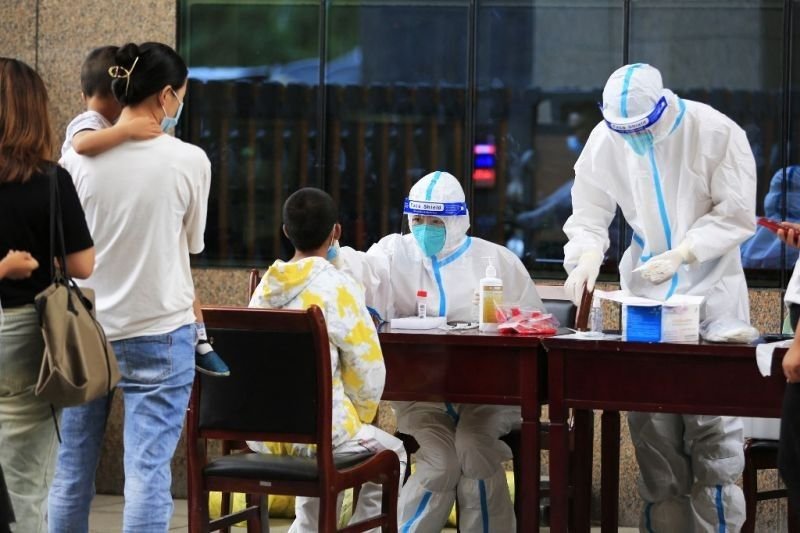New Delhi, 29 May 2025: As researchers continue to explore the long-term effects of COVID-19, a new U.S.-based study has revealed a concerning trend: infants diagnosed with long COVID are prone to sleep disturbances and appetite problems, raising red flags about the long-term impact of the virus on the youngest and most vulnerable. The study, conducted by a team of pediatric researchers and published recently in JAMA Pediatrics, adds to the growing body of evidence suggesting that long COVID isn’t limited to adults or older children—it can also affect babies under 1 year of age.
Let’s break down what the research found, why these symptoms matter in early development, and how parents can support infants showing signs of post-COVID complications.
What Is Long COVID in Infants?
Long COVID, also known as post-acute sequelae of SARS-CoV-2 infection (PASC), refers to persistent symptoms that continue for weeks or months after the initial COVID-19 illness. While long COVID has been widely documented in adults and adolescents—causing fatigue, brain fog, heart issues, and more—it’s only recently that researchers began to observe lingering effects in infants.
According to the new U.S. study, infants under 12 months who previously tested positive for COVID-19 were more likely to exhibit irregular sleeping patterns, poor appetite, and irritability months after recovery from the acute infection. These are critical areas of concern because nutrition and sleep are fundamental to brain development and immune health in babies.
The research, which analyzed medical records and conducted follow-up evaluations of more than 500 infants across several pediatric centers, identified a pattern of symptoms consistent with long COVID syndrome. Compared to a control group of infants who had never been infected with COVID-19, those who had recovered from the virus were:
- 2.3 times more likely to have trouble sleeping
- 1.8 times more likely to experience feeding difficulties or appetite loss
- More likely to exhibit mood changes, including fussiness, lethargy, and decreased playfulness
- These symptoms were often subtle but persistent, lasting more than 12 weeks after the initial infection.
Why Sleep and Feeding Issues Are Alarming in Babies
Sleep and nutrition are the cornerstones of infant development. In the first year of life, a baby’s brain grows more rapidly than at any other time. Chronic sleep disturbances and poor feeding during this crucial period can impair:
- Cognitive development
- Weight gain and physical growth
- Emotional regulation
- Immunity and gut health
Pediatricians warn that prolonged disruptions in these areas—especially when caused by underlying inflammation or post-viral fatigue—may have lasting consequences on the child’s physical and mental well-being.
How Long COVID Manifests in Infants
In adults, long COVID is often marked by fatigue, difficulty concentrating, breathlessness, and joint pain. But in infants, the symptoms are harder to recognize and often appear in the form of behavioral changes. Some common signs of long COVID in babies may include:
- Frequent waking during the night
- Decreased interest in feeding or nursing
- Unexplained crying or clinginess
- Delayed developmental milestones
- General lethargy or reduced physical activity
The study’s authors stress the importance of not dismissing these changes as merely part of regular infant behavior, especially if they arise weeks after a confirmed COVID-19 infection.
Theories Behind Long COVID in Babies
Although the exact mechanism behind long COVID is still being studied, researchers suggest a few potential explanations for why infants may experience these prolonged symptoms:
- Immature immune response: Infants’ immune systems are still developing, which may make them more susceptible to lingering inflammation or immune dysregulation after the virus.
- Neuroinflammation: COVID-19 may trigger inflammation in the central nervous system, affecting sleep and appetite regulation in the brain.
- Microbiome imbalance: The gut microbiome, which plays a role in digestion and immunity, may altered by COVID-19, leading to feeding issues.
- Post-viral fatigue: Even in mild cases, viral infections can leave infants with residual fatigue and disrupted biological rhythms.
What Parents Should Do: Signs and Support
If your baby had COVID-19 and is now showing signs of poor sleep, feeding difficulties, or behavioral changes, it’s essential to consult a pediatrician. Some ways to support your child include:
Track symptoms: Maintain a journal of sleep patterns, feeding times, and mood changes to discuss with your healthcare provider.
Follow up regularly: Infants recovering from COVID-19 should have regular developmental checkups to ensure they are meeting milestones.
Stick to a routine: Consistency in sleep and feeding schedules can support recovery and emotional regulation.
Offer comfort and bonding: Skin-to-skin contact, gentle rocking, and soothing sounds can reduce irritability and promote better sleep.
Consider therapy: In some cases, pediatric feeding therapy or sleep counseling may recommended.
Expert Advice: Early Detection Is Key
Dr. Megan Raynor, a pediatric infectious disease expert and one of the lead authors of the study, says, “Parents are often told that babies are resilient, and while that’s true, we shouldn’t ignore prolonged changes in behavior, feeding, or sleep. Long COVID is real—even in infants—and early intervention can make a big difference.”
She adds that more research needed to understand how long these symptoms may last and whether they affect long-term development.
This new study offers an important reminder: even babies can suffer from long COVID, and their symptoms may be harder to detect but no less impactful. For parents and caregivers, staying informed, observant, and proactive is essential.
If your infant has had COVID-19 and seems “off” weeks later—whether in sleep, appetite, or mood—it’s worth discussing with your pediatrician. The earlier long COVID identified and addressed, the better the outcomes for your baby’s health and development.







